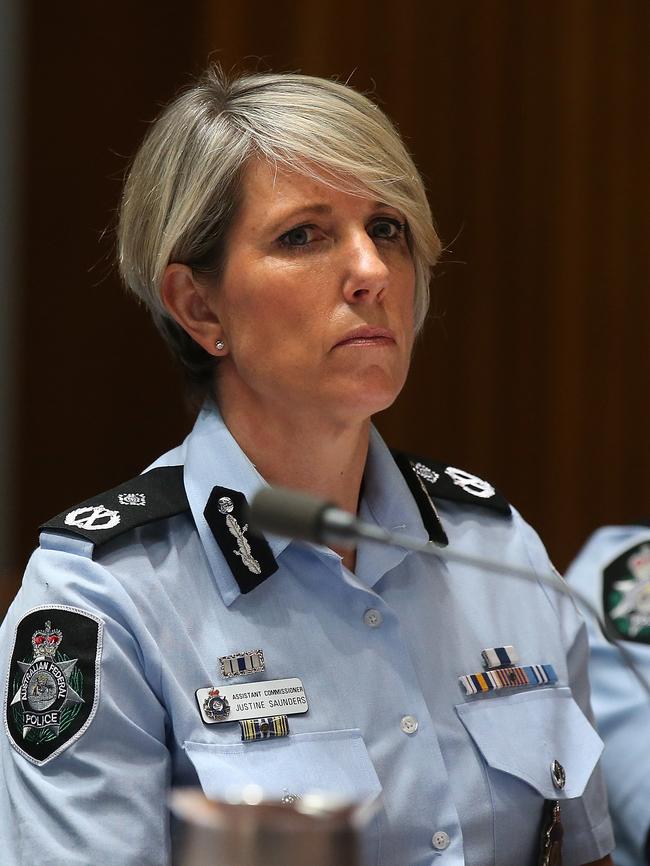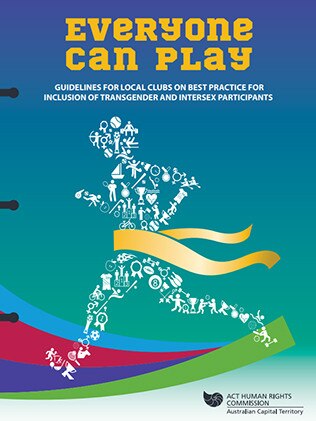What to do when lying facedown on the floor, hands over head, when the neighbourhood is firebombed and houses are getting sprayed with an AK-47 automatic weapon?
It is a question residents in the Canberra southern district of Tuggeranong must have asked this week with the fifth such incident in recent months, as the turf war among rival outlaw motorcycle gangs (OMCG) intensifies.

“I just think it’s a matter of time before an innocent person gets caught up in that and gets injured or killed,” said Chief Police Officer Justine Saunders.
Residents caught in such terrifying situations could, while waiting for police and emergency services, draw solace from reading the secular version of the Good Book, in this case the ACT’s Human Rights Act 2004. Section 9 provides that “no-one may be arbitrarily deprived of life.” The responsibility for ensuring compliance with that Act sits with the ACT Human Rights Commission and its president, Dr Helen Watchirs. Compared with that of her federal counterpart Gillian Triggs, Watchirs has a relatively paltry base salary of $220,381.
Unlike the federal government, the ACT’s minority government, a Labor/Greens coalition, takes very seriously the decrees of its HRC president. In July 2016 the government rejected calls from police to enact anti-consorting legislation to address the increasing and longstanding OMCG threat, citing Watchirs’ advice that the proposed laws “should have no place in a modern democratic society”. The “level of OMCG activity in the ACT remains relatively low”, submitted Watchirs, who presumably doesn’t get out to Tuggeranong much. As recently as 2015 then Attorney-General Simon Corbell had been in favour of the legislation, declaring he did not want OMCGs to see Canberra as a “soft touch”.
The fact gangs have since come to the capital in droves is not so much them seeing Canberra as a soft touch but more a laughing stock.
Also opposing the laws was the Greens’ Shane Rattenbury, currently the Minister for Justice. Ostensibly the junior partner in the coalition, he enjoys a disproportionate influence — the green eminence, one might quip. His party’s agreement with Labor is based on having one’s cake and eating it too, for Rattenbury enjoys all the perks of being a minister while not having to observe cabinet solidarity.
As with Watchirs, Rattenbury strongly professes a belief in civil liberties, hence his opposition to the anti-consorting laws. Yet only days after opposing this legislation he introduced a private amendment to the territory’s anti-discrimination laws, since passed, to outlaw “vilification” on the grounds of religion. This includes “serious contempt” for and “severe ridicule of” a person and/or a group of people, and it can be infringed simply by displaying an emblem on a T-shirt or a post on social media.
So what was Rattenbury’s justification for such sweeping legislation and the consequent restrictions upon freedom of speech? Very little as it turns out. He cited vandalism of an Islamic centre (for which there were already provisions in criminal law), and claimed that houses had received leaflets containing “anti-Muslim material” in opposition to a proposed mosque.
In any event this legislation appears to contravene section 16 of the Human Rights Act, which provides for people to have the right to “hold opinions without interference,” and “freedom of expression”, including “the freedom to seek, receive and impart information and ideas of all kinds.” Surely it was only a matter of time before Watchirs objected strongly to Rattenbury’s amendment?
Not only did Watchirs not oppose this amendment: she approved of it. You heard right: the human rights commissioner who labelled the anti-consorting legislation as a “profoundly retrogressive step” heartily endorsed what closely resembles the old blasphemy laws. Religious vilification, she said last year, was “an issue”. Clearly it must be an overwhelming issue if the numbers in the HRC annual report for 2014/15 are accurate. According to that document the HRC did not receive a single complaint of discrimination based on the grounds of “religious conviction”.

Likewise, the HRC’s support for freedom of speech does not extend to public protests that offend progressive mantra. In 2015, Rattenbury successfully introduced a private member’s bill to impose so-called exclusion zones outside health clinics to thwart anti-abortion protesters. “This is not a freedom of speech issue,” he argued.
Predictably, Watchirs supported the move. “The bill is also neutral about the type of protest that it is to be regulated, in that protest activity both for and against abortion will be captured,” she submitted, in what could be termed one of the most risible attempts at rationalisation. Presumably then she would not object to a similar exclusion zone for approved forest-clearing on the basis that the legislation also outlawed pro-logging demonstrations?
Currently three pro-life protesters — all aged in their seventies — are before the courts for refusing to pay a $750 infringement notice, with the matter resulting in international attention. It also raises interesting considerations in respect to the HRC’s views on what constitutes the greatest threat to social harmony — the bikie indiscriminately firing an illegal AK-47 in public or the elderly pensioner brandishing a set of rosary beads?
Spare a thought for the officers of ACT Police, who are trying in vain to curtail the OMCGs despite not having the legislation they desperately need. And here’s a teaser for Chief Police Officer Saunders: if the HRC were abolished and its $3.6m budget allocated to your organisation, how would you use it to combat the OMCG scourge? Of course, such a move should never even be contemplated, for where would we be without essential publications such as Everyone Can Play: Guidelines for Local Clubs on Best Practice Inclusion of Transgender and Intersex Participants?
As for what else the Greens and the HRC intend outlawing next, it is anyone’s guess. In 2015 Rattenbury demanded the removal of “offensive” advertisements from Canberra airport. “We are confronted with unwelcoming pictures of border patrol ships advertising arms manufacturers,” he said. “Given that this year Canberra was officially declared a refugee welcome zone, it is simply not appropriate that those seeking refuge from war should be greeted upon arrival in Canberra with advertising that promotes warfare and armed violence.” It makes one wonder what is more menacing — a gang of armed bikies intent on rampaging, or a collective of righteous zealots with their grand plans for us.







